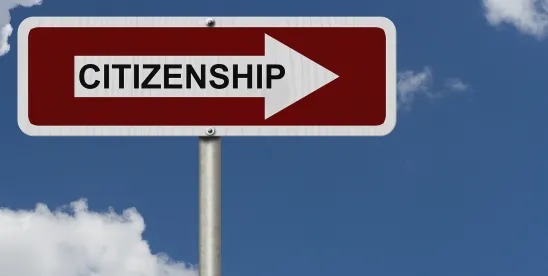On Thursday, January 23, 2025, a federal judge in Seattle, Washington blocked enforcement of President Donald Trump’s recent executive order limiting birthright citizenship after four states (Washington, Illinois, Arizona, and Oregon) sought a temporary restraining order (TRO).
The judge described the executive order as “blatantly unconstitutional.” The executive order limiting birthright citizenship asserts that children born in the United States on or after February 19, 2025, who do not have at least one lawful permanent resident or U.S. citizen parent, will not have a claim to birthright citizenship.
Quick Hits
- A federal judge in Washington recently granted four states a temporary restraining order halting enforcement of President Trump’s new executive order on birthright citizenship.
- The case that resulted in the temporary freeze is one of five lawsuits filed by 22 states and several civil rights organizations.
- The federal judge who issued the temporary restraining order has stated that he will consider whether to grant a long-term injunction over the next weeks.
In their complaint, the states that received the order assert, “nothing in the Constitution grants the President, federal agencies, or anyone else authority to impose conditions on the grant of citizenship to individuals born in the United States.” The states assert that the executive order is contrary to the Citizenship Clause of the Fourteenth Amendment of the U.S. Constitution and to the text and history of the almost century-old legal precedent, which states, “[a]ll persons born or naturalized in the United States and subject to the jurisdiction thereof, are citizens of the United States and of the State wherein they reside.”
The federal judge seated in Washington has stated that there exists a strong likelihood that the states will succeed on the merits of their claims that the executive order violates the Fourteenth Amendment. In the four-page temporary restraining order, the federal judge cited to a violation of the Fourteenth Amendment in deciding to grant the order. Other states have likewise joined in with similar claims as those made by the original four states. As of January 21, 2025, twenty-two states and several civil rights organizations have filed five lawsuits challenging President Trump’s executive order on birthright citizenship, including one lawsuit filed mere hours after the president signed the order.
Next Steps
During the coming weeks, the judge will decide whether to grant a long-term injunction. If the injunction is challenged, the U.S. Court of Appeals for the Ninth Circuit would have jurisdiction over the case. The question of birthright citizenship could eventually reach the Supreme Court of the United States. The Supreme Court previously answered this questions in an 1898 case.






 />i
/>i
